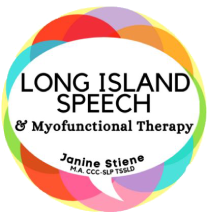Blog
Better Speech and Hearing Month!
The American Speech-Language-Hearing Association (ASHA) designates the month of May as “Better Speech and Hearing Month!” Usually during this time of year Speech-Language Pathologists (SLPs) and Audiologists come together for workshops and conferences. It is also the time of the year to increase awareness of the field of Speech-Language Pathology within the community.
History of the Profession:
The need for specialists to work with individuals who presented with disorders of speech was identified in the 1920’s. “Speech correctionists”, as they were formerly referenced, were not introduced into the school system until the 1950’s. The beginning of the field revolved around articulation but as the years past the field has grown to include voice, fluency, language, dysphagia, accent reduction, acquisition and oral-motor evaluations and treatments. Speech-Language Pathologists are now amply present in not only schools but also hospitals, rehabilitation facilities and private practices.
Education and Certification:
There are four professional terms associated with individuals who work in the field of speech therapy, “Speech Correctionist”, “Speech Therapist”, “Speech-Language Pathologist” or “Speech Pathologist” and “Speech-Language Specialist”. Although these terms are often used interchangeably, they actually mean different things. In the 1950’s, a person would receive a Bachelor of Arts (B.A.) in Speech Correction. The requirements for the teaching certificate then changed in the 1980’s to what they are now. In order to work in most schools, an SLP must obtain a “Speech-Language Specialist” or “Speech-Language Pathologist” certificate. This requires a master’s degree (M.A. or M.S.) and approximately 300 clinical hours in diagnostics and interventions. The masters program for Speech-Language Pathology combines science, education, medicine, and psychology. Most graduate programs require 40-60 graduate credits, in addition to several clinical internships. SLPs may also be registered to obtain two additional certificates: The Certificate of Clinical Competence (CCC) and a state license. The CCCs are issued when the SLP completes a masters degree, 375 hours of supervised clinical hours in communication disorders and therapy, a passing score on the ASHA exam, and completion of a Clinical Fellowship Year (CFY). However, state license requirements vary.
Scope of Practice:
If an SLP is in a school-based program they are most likely going to focus on articulation therapy, voice therapy, stuttering therapy, language therapy, group language lessons, sign language programs, speech reading programs, speech and language evaluations and hearing screenings. If an SLP is in a rehabilitative program they are most likely going to focus on dysphagia therapy, videofloroscopy studies, laryngectomy patients, closed head injury, stroke and trauma, Alzheimer’s patients, cleft palate, speech and language testing and hearing screenings.
SOURCE: Super Duper Handy Handout #19
https://www.superduperinc.com/handouts/pdf/19_Celebrate_Better_Speech.pdf
-Rebecca Hipp M.A. CF-SLP, TSSLD




